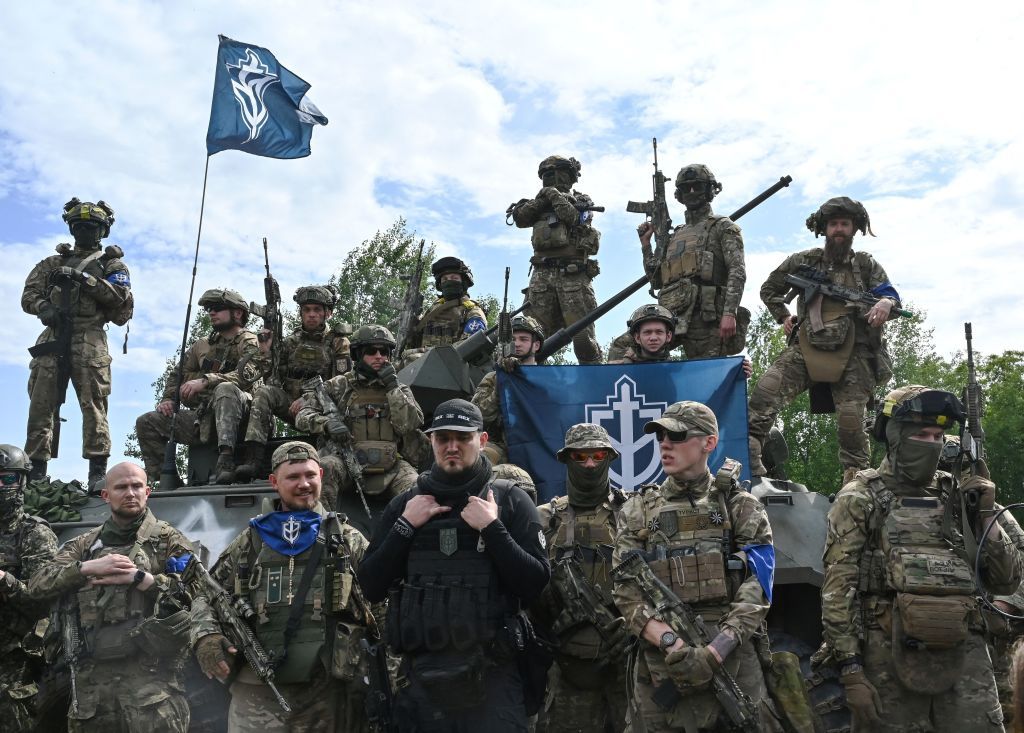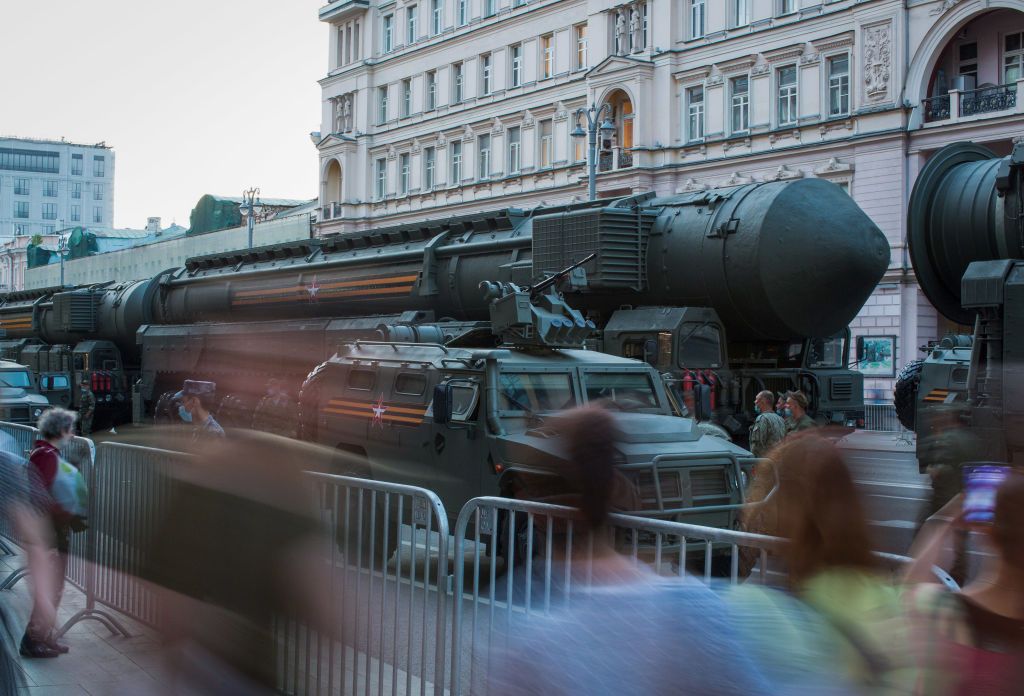Ukraine war latest: Russia launches largest drone attack on Kyiv; Ukraine to sanction Iran

Key developments on May 28:
- Russia launches biggest drone attack on Kyiv, 1 killed, 2 injured
- Ukraine likely to sanction Iran for 50 years
- Lukashenko claims Russia will give nukes to any state that joins it
Ukraine's air defense shot down 58 out of 59 Iranian-made Shahed loitering munitions overnight on May 28 as Russia launched a massive drone attack across Ukraine, the General Staff of Ukraine Armed Forces reported in its evening update.
When first reported, Ukraine's Air Force said it downed 52 out of 54 Russian drones.
The infrastructure site was hit in central Zhytomyr Oblast, Governor Vitalii Bunechko reported, without providing other details.
Kyiv, Ukraine's capital, was attacked for the 14th time this month.
The May 28 attack, hours before the start of Kyiv Day celebrating the city's founding, was the largest since the start of Russia's full-scale invasion.
The air defense shot down over 40 Russian drones in and around the capital.
However, a civilian was killed by the drone's debris.
Drone parts hit a gas station, killing one and injuring two civilians in Kyiv, local police reported on the morning of May 28. The injured have been hospitalized.
According to the Kyiv City Militarily Administration, the debris also caused a fire in three districts.
President Volodymyr Zelensky thanked Ukraine's air defense and first responders following the Russian drone attack across Ukraine.
"Every time you shoot down enemy drones and missiles, lives are saved," Zelensky said.
Sanction against Iran
President Volodymyr Zelensky filed a draft resolution to the Ukrainian parliament to impose sanctions against Iran for 50 years following the National Security and Defense Council decision.
Sanctions include a complete ban on trade with Iran, investments, and transferring technologies, as well as stopping Iranian transit across Ukraine and preventing the withdrawal of Iranian assets from the country.
The Verkhovna Rada, Ukraine's parliament, must approve the bill for it to become law. The vote hasn't been scheduled yet, according to its website.
Iran has supplied Russia with military hardware, including the Shahed loitering munition that Russia has launched at Ukraine by the hundreds.
The U.S. and the EU have imposed sanctions against Iran for supplying Russia with these drones.
The parliament usually adopts resolutions based on the National Security and Defense Council decisions, thus, Ukraine is likely to impose these sanctions against Iran.
On the battlefield
The General Staff warned that the probability of missile and air strikes throughout Ukraine remains high.
The military reported that the Russian forces conducted 91 airstrikes and 25 shelling across Ukraine on May 28.
According to the report, the Russian forces continue their main efforts in assaulting eastern Luhansk and Donetsk oblasts.
Russia controls almost the entire Luhansk Oblast and occupies over half of the Donetsk Oblast.
In addition, Russian forces attacked multiple settlements in Sumy, Kharkiv, Chernihiv, Zaporizhzhia, and Kherson oblasts on May 28, the military reported.
Meanwhile, multiple explosions were reported in Russian-occupied regions.
Ukrainian media outlets reported explosions in occupied Berdiansk, Zaporizhzhia Oblast, on the morning of May 27. Several explosions were also reported in occupied Berdiansk earlier on May 25.
Nuclear proliferation
Belarus' dictator Alexander Lukashenko claimed Russia would give nuclear weapons to any state that joins the Union State of Russia and Belarus, Russian state-controlled media said.
The Union State, a supranational union consisting of Belarus and Russia, was created in 1999 and aimed at eventually making the two countries into one by deepening political and economic integration.
"It's very simple. The union of Belarus and Russia should be open for entry, and that's all: There will be nuclear weapons for all," he claimed.
Moscow and Minsk signed documents on May 25, allowing the placement of Russian non-strategic nuclear weapons on Belarusian territory.
Lukashenko claimed on May 25, Russia started transferring some of its tactical nukes to Belarus.
Putin had first threatened to do so on March 25, adding that a special storage facility for tactical nuclear weapons would be ready by July 1.
However, control over the weaponry and decision on its use remains with the Kremlin.
NATO, the EU, and the U.S. have condemned the decision to transfer nuclear weapons to Belarus.
The EU diplomacy chief Josep Borrell called the decision an "irresponsible escalation and threat to European security."
The Institute for the Study of War suggested on May 26 that the move was part of a longstanding effort to cement Russia's de facto military control over Belarus.














